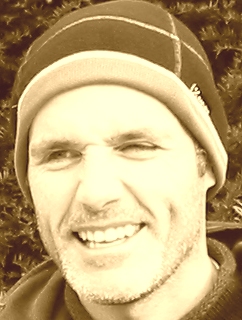Faking the meaning of life
By Ray O'Reilly
It's bad enough, in the Friends era, being able to quote Ross Geller – the nerdy palaeontologist – but being fully versed in the McDreamy language of Grey's Anatomy is a nauseating form of existentialism .
20 July 2009
Who would think a fondness for fizzy TV sitcoms could wage negotiated war on a person's identity? I blame growing up in a village where entertainment meant playing sport, watching others play sport, or going to the pub to watch sport on TV, with others.
To me, sitcoms were escapism from small-townism. Reruns of M*A*S*H, the long-running series spoofing Korean War medicos, were meticulously slotted into nightly homework routines. Magnum P.I. the Vietnam War veteran turned private investigator, Miami Vice, two dapper dope cops, and Knight Rider, pairing a do-gooder and smart-arse talking car, rounded off an average week.
It's Monday night, 30 years later, and I'm still cramming in work (if you call this column work!) so I'm free to watch my latest and perhaps greatest escape, Brothers & Sisters, which revolves around a meddling Jewish-Irish family who rally round ‘mom' after their serial-shagging father dies.
Itsy-bitsy steps
Yesterday, my wife says, “You know, I've been thinking about what Justin told Kevin [brothers in the series] about changing things in your life one step at a time – remember he said, ‘if you can't make it, fake it'!”
“I remember,” I say warily.
“We should do that,” she issues, “If we don't like something and it's difficult to change, we can work away at it until it comes naturally.”
(I nod blankly – what else can I do? I'm recovering from ankle surgery, watching TV and now I've got an existential problem. Is my ‘escapism' really a covert mission for authenticity? Jean-Paul Satre's ‘Being and Nothingness' comes to mind. No, really.)
It's a discomforting thesis. Are soaps and sitcoms my meditative beacon, not my mental barrel? I have to investigate further. Hoping to find solace – that there is nothing significant about my viewing habits – I am confronted with meaning and metaphor at every turn of the internet page.
Carl Jung offers me a semantic lifeline until some bright spark equates the Swiss psychiatrist's views on “individuation” with Sartre's philosophy on “authenticity” – both apparently suggesting we seek meaningful existence through the creative exercise of freedom, and by overcoming self-deception.
(It's not looking good. Watching soppy TV means I'm seeking clarity, not nothingness?)
It is not from Jung but a guy called Young (‘Escapism in literature and life') do I learn the real truth: I'm marching the Appian Way to utopia. Escapism, he suggests, can seem like a “character weakness” that ends… in death (I hope he means acceptance of it). Or it could seem like a delusional quest for “moral triumph” and “self-improvement”. Better yet, it could be the “intellectual triumph” felt by ancient Greeks in “developing transcendental or idealist thought” leading to scientific discovery.
So, if I keep watching Brothers & Sisters – post-9/11 fiction par excellence – I am accepting and then transcending death, and discovering new universes and ideals along the way. Good then.
Now that I've sorted the existentialism out… for the uninitiated, Justin in the series is an Iraq War veteran and recovering addict who administers newfound wisdom to his gay brother Kevin on how to overcome a feud with their other brother Tommy who had recently sacked Kevin from the family food production company only to…
(One step at a time for this weary veteran.)
More information:
Escapism in literature and life, Warren L. Young, Neohelicon journal (Volume 4, Numbers 3-4 / September, 1976)
To plan your own escape, Google the TV series' titles or buy the box sets on Amazon
This article first appeared in (A)Way magazine. It is republished here with the author's permission. © Copyright Ray O'Reilly.


